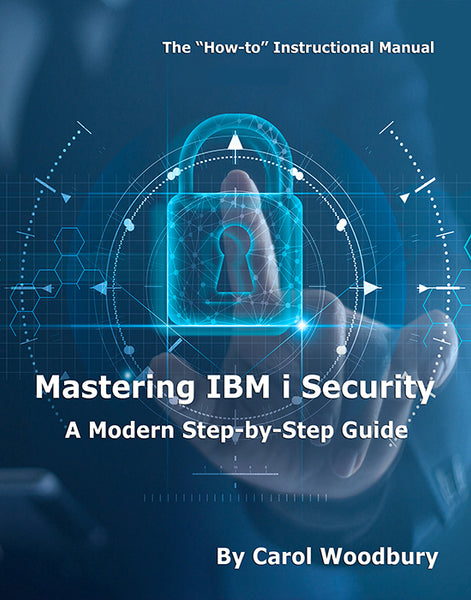In this article, security expert Carol Woodbury discusses whether being in compliance guarantees the privacy of your data.
When I was asked to write this article, I had to take a few minutes to determine the answer to the question. My initial reaction was, "Yes, of course. If you're in compliance, the data privacy is ensured." But as I thought about it a bit more, doubts began to crowd out my initial reaction. Join me in my thought process as I derive my final answer.
Before I describe my thought process on this subject, let me define what I mean by privacy. Simply put, I define data privacy as giving out personally identifiable information (PII) only to individuals with a "right to know." In a business setting, that translates into giving access only to individuals with a defined business need to use the data. For example, there should be very few, if any, individuals in an organization who can decrypt and see the full credit card information for all transactions in a database. Given this configuration, I would consider that the credit card information—as it resides in this database—to be private.
Compliance with What?
The first doubt that came to me immediately was: compliant with what? Before we can assert data privacy, we need to understand what we are in compliance with: the Payment Card Industry's Data Security Standards (PCI DSS), Health Insurance Portability and Accountability Act (HIPAA), Personal Information Privacy and Electronic Documents Act (PIPEDA) Sarbanes-Oxley Act (SOX), various state breach notification laws, ISO 27000 series, Basel II, and so forth. All of these laws or regulations have been lumped into the security compliance arena. The problem is, some of these laws and regulations have a great deal of detail on how data should be secured, but most just assert that the data should be secured and don't make demands or recommendations; therefore, it's up to you to decide the best method for implementing the security referred to in the law or regulation. If you choose a flawed method for securing the data, you might be in compliance with the law or reg (because you've met the intent), but the result is that the data isn't secure and, therefore, privacy cannot be assured For example, HIPAA—the law that's supposed to ensure the privacy of our healthcare data—is rather vague on how data is to be protected and is extremely vague on the system and network configurations on which healthcare information is stored and transmitted.
Let me digress for one moment. Unless data is secured, it cannot be private. For example, if a database containing healthcare information is left with its default access controls set such that everyone on the system can read the data, the information is not secure…nor is it private. Data must be secured if it is to be private; therefore, if the law or regulation does not have specific security requirements or its security requirements are weak (that is, not based on security best practices), compliance does not ensure privacy.
Even if the law or regulation does have a complete set of security requirements—such as the PCI DSS—compliance may not guarantee privacy. Why not? Because the regulation is not complete and does not cover every eventuality. Take the Hannaford Foods security breach in which more than 4 million accounts were compromised. This grocery store chain was supposedly in PCI compliance at the time of the breach. So even the most detailed regulation does not guarantee privacy. Is there a higher likelihood that the cardholder information (that is, the credit card information retailers retain) will remain private because of the PCI DSS? Yes. Is it guaranteed? No.
What Type of Data?
The next thought cast another doubt. What type of data are we referring to? Depending on the type of data, there are more- restrictive or less-restrictive laws and regulations covering that data. As I said earlier, cardholder data is more likely to be private because of the restrictive nature of the PCI DSS. One might assume the same about healthcare data. But did you know that HIPAA does not cover healthcare information associated with workers' compensation? Strange but true. And, until
Is There No Hope?
By now, the answer to the question "Does compliance ensure privacy?" looks pretty grim. Is there any case where compliance can ensure privacy? Yes. But only if security best practices are implemented throughout an organization, at every turn and every juncture. Remember, security is only as good as your weakest link. From ensuring physical security to performing hiring screenings to implementing "deny by default" access controls to logging to monitoring to executing security assessments—everything has to be in place to ensure data privacy. Is this unrealistic? Well, I must admit that I've never seen an organization fully implement security best practices throughout the entire organization, but I've seen organizations come close. I've also seen organizations make informed decisions about the risks to their information and take steps to implement several layers of protection around that data. And that's what I'd recommend that you do: implement security best practices wherever possible. You may not be able to ensure data privacy, but the likelihood of achieving it by using best practices is far greater than the likelihood of achieving it by relying solely on compliance with laws and regulations.















 Business users want new applications now. Market and regulatory pressures require faster application updates and delivery into production. Your IBM i developers may be approaching retirement, and you see no sure way to fill their positions with experienced developers. In addition, you may be caught between maintaining your existing applications and the uncertainty of moving to something new.
Business users want new applications now. Market and regulatory pressures require faster application updates and delivery into production. Your IBM i developers may be approaching retirement, and you see no sure way to fill their positions with experienced developers. In addition, you may be caught between maintaining your existing applications and the uncertainty of moving to something new. IT managers hoping to find new IBM i talent are discovering that the pool of experienced RPG programmers and operators or administrators with intimate knowledge of the operating system and the applications that run on it is small. This begs the question: How will you manage the platform that supports such a big part of your business? This guide offers strategies and software suggestions to help you plan IT staffing and resources and smooth the transition after your AS/400 talent retires. Read on to learn:
IT managers hoping to find new IBM i talent are discovering that the pool of experienced RPG programmers and operators or administrators with intimate knowledge of the operating system and the applications that run on it is small. This begs the question: How will you manage the platform that supports such a big part of your business? This guide offers strategies and software suggestions to help you plan IT staffing and resources and smooth the transition after your AS/400 talent retires. Read on to learn:
LATEST COMMENTS
MC Press Online